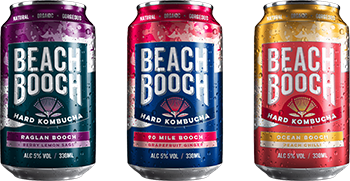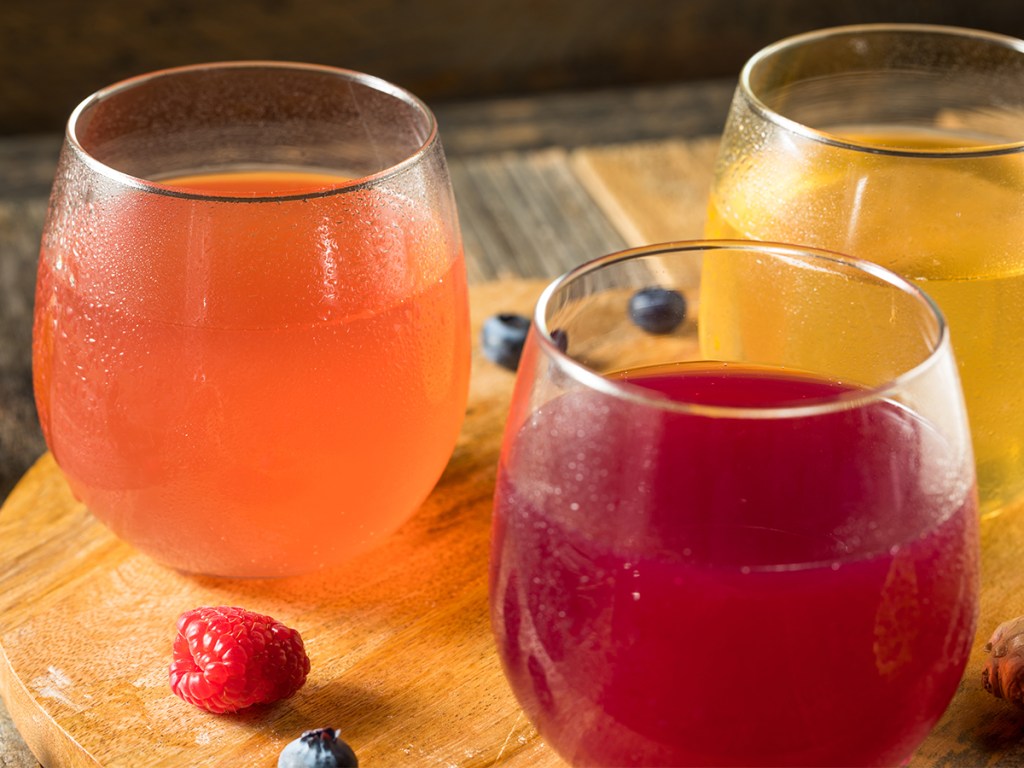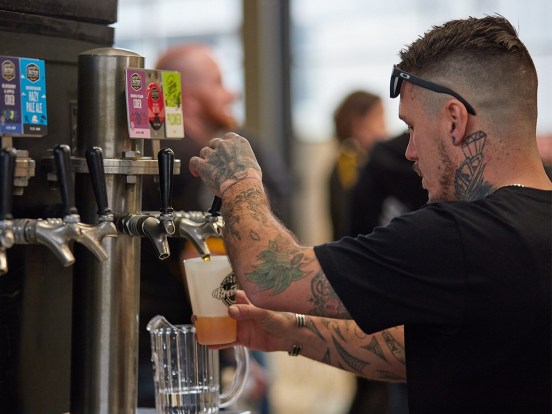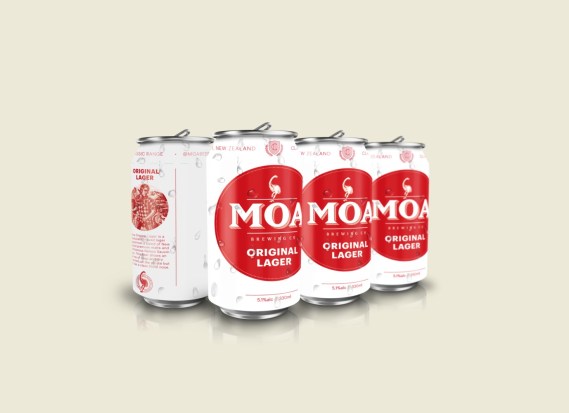With the better-for-me beverage movement continuing to gain momentum both globally and locally, alcoholic kombucha (or hard kombucha) looks set to gain traction in the health and wellness space.
According to global liquor research analysts IWSR, the US is set to be the driving force for hard kombucha in the short to medium term – with volumes expected to more than double by 2023.
But other markets, such Australasia and the UK, will provide pockets of growth as more brand owners – including a number of brewers – explore the category.
So what exactly is hard kombucha?
Regular (or soft) kombucha is a 200-year-old fermented drink made with sweetened black or green tea and SCOBY, which stands for symbiotic colony of bacteria and yeast.
It is often blended with fruit juice and its probiotic properties are said to assist in gut health and reduce inflammation (amongst other claims).
All kombucha contains a small amount of alcohol (less than 0.5% ABV) as a by-product of the fermentation process, but it is still classified as a non-alcoholic beverage.
To get the additional alcohol content in hard kombucha, extra sugar and yeast are added to extend the fermentation process in order to create an alcoholic beverage.
“While hard kombuchas are alcoholic, they still benefit from the halo effect of the perceived health benefits [of regular kombucha],” says Brandy Rand, COO Americas at IWSR.
“Many brands play upon this by highlighting their probiotic properties, as well as wellness-friendly ingredients such as enzymes, organic acids, vitamins and minerals.”
Taking on the market
With hard seltzers dominating the better-for-me RTD category, Rand says new entrants into the category are driving the diversification of hard kombucha through innovation.
“[Such as] innovative flavour combinations, differing levels of alcoholic strength and fresh packaging formats – from the slimline cans favoured by hard seltzers to regular cans and bottles traditionally used by beers,” she says.
IWSR says hard kombucha typically shares many ‘favourable’ characteristics with hard seltzers.
They are both typically low in calories, sugar and carbohydrates, as well as often being organic, non-GMO and gluten-free.
Rand says many brand owners call attention to these properties by packaging their hard kombuchas in the slimline, single-serve aluminium cans that are already strongly associated with hard seltzers.
But in order to target their own category of consumers, Rand says hard kombucha brands are releasing products with fewer calories and lower carbs, “allowing them to compete more directly and effectively with hard seltzers”.
Brand owners are also looking to varying levels of alcohol to provide them with a unique selling point.
With RTDs in general and hard seltzers in particular, much activity is focused around the 4.1-5% ABV, IWSR reports there has been a significant increase in the launches of both lower- and higher-ABV products in recent months.
They are also increasingly exploring the fringes of the hard kombucha category, with variations such as canned RTD cocktails, hard kombuchas fermented with Champagne yeast and hybrid products combining hard kombucha with beer.
Hard kombucha in New Zealand
Hard kombucha brands have been slowly popping up in New Zealand for the past few years.
Both Kombucha Bros and Happy Booch launched in 2019 and there are now a decent handful of hard kombucha brands in the Kiwi better-for-me RTD space.
One of the most recent additions to the category is Beach Booch which was founded by two mates, Kiwi Alistair Kirk and Californian George Wielechowski, and launched into the market in June this year.
“The Beach Booch story began and exploded with mates riffing on opportunities and ideas to create a New Zealand brand that smashed together So-Cal know-how with Kiwi can-do, and to celebrate the all-things Aotearoa,” Kirk told The Shout NZ.
The Beach Booch range currently includes 90 Mile Booch – grapefruit and ginger; Ocean Booch – peach and chilli; and Raglan Booch – berry, lemon and sage.
“Our chief brewer, [who is] San Diego based, is a pioneer in the hard kombucha space, so his knowledge of flavours is absolutely invaluable,” says Kirk.
“We selected flavours that represent some of our favourite places in New Zealand – citrus for Northland, peaches for Hawke’s Bay, berries for Waikato – and added a Beach Booch twist.”
Kirk says initial consumer response has been overwhelmingly positive and Beach Booch has a long list of other flavours that will be launching over the coming months.
“Our flavours, our organic ingredients, our core team’s product knowledge and expertise and our brand has meant we have well and truly launched with a bang.”
And with the focus of the brand on all-things New Zealand, Kirk hopes the country – and then the rest of the world – will jump on board.
“We literally created the brand and product as a celebration of all the things we love most about New Zealand,” he says. “It’s why we’ve pushed so hard to make sure that we’re brewed and produced right here in Aotearoa.
“It would be amazing if we adopted and got behind Beach Booch, made it ours and then took it to the world. Our plans are huge and ambitious and we know that as a new company in a fledgling category, we have to do this carefully and well – we’re so excited to see where this goes.”
And while the hard kombucha category is still relatively small in New Zealand, Kirk believes there is a definite demand for it in the better-for-me space.
“The soft kombucha market, along with the explosion in hard seltzer and non-beer options, gives us huge confidence that there is a solid and growing demand for something new,” he says.
“Couple that with the actual year-over-year and projected world-wide growth of hard-kombucha, especially in our region, and we can see that this is something that New Zealanders, and others are starting to move towards.”
Originally published in the September issue of The Shout NZ.

Did you know?
There are 6 ways you can catch up with The Shout NZ?
Our print magazine – September issue out now! Subscribe here.
Online, updated daily with its own completely unique content and breaking news.
Our weekly newsletter – free to your inbox! Subscribe here.
Our digital magazines – the latest issues are online now.
We are also on Facebook and Instagram!




